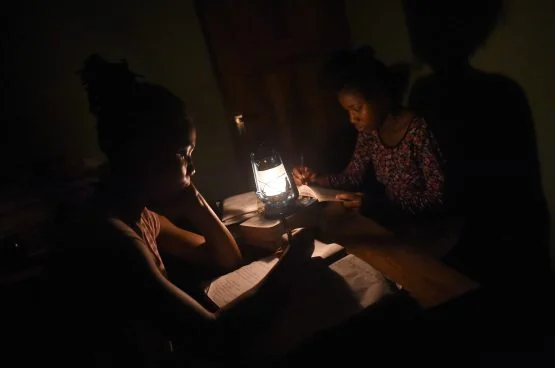National Issues
Nigeria’s Electricity Prices Shine Brighter: Neighbors Left in the Dark -By Ibrahim Bukar Tijjani
Nigeria’s relatively low electricity prices present a unique opportunity for economic growth and development. Despite facing significant challenges in the power sector, the country’s competitive advantage in electricity pricing can attract foreign investment, boost trade, and improve living standards.

Study Reveals Nigeria’s Power Tariffs Lower Than Ghana, Benin, Togo, and Cameroon
LAGOS – In a surprising revelation, Nigeria’s electricity prices have been found to be significantly lower than those of its neighboring African countries.
A recent study by the Nigerian Electricity Regulatory Commission (NERC) revealed that Nigeria’s electricity prices average around ₦24.60 per kilowatt-hour (kWh), compared to:
– Ghana: ₦34.60/kWh
– Benin Republic: ₦39.80/kWh
– Togo: ₦41.30/kWh
– Cameroon: ₦45.50/kWh
The study attributed Nigeria’s relatively low electricity prices to government subsidies, which account for approximately 30% of the power sector’s costs.
“Nigeria’s hydroelectric power generation, which accounts for 40% of its electricity mix, also contributes to lower costs,” said Dr. Usman Mohammed, NERC’s Chairman.
Nigeria’s natural gas reserves, which enable efficient and cost-effective power generation, also played a significant role in keeping prices low.
ECONOMIC IMPLICATIONS
The lower electricity prices are expected to stimulate economic growth by reducing production costs for industries and businesses.
“This is a welcome development for Nigerian manufacturers and entrepreneurs,” said Mr. Segun Ajayi-Kadir, Director-General of the Manufacturers Association of Nigeria (MAN).
CHALLENGES AHEAD
Despite these advantages, Nigeria’s power sector faces significant challenges:
– Infrastructure deficiencies: Inadequate transmission and distribution infrastructure hinder efficient power supply.
– Power generation shortfalls: Nigeria’s electricity generation capacity falls short of demand, currently at 4,000MW against a demand of 10,000MW.
– Tariff disputes: Controversies surrounding electricity tariffs and subsidies can impact the sector’s financial sustainability.
WAY FORWARD
Experts advocate for increased investment in infrastructure, renewable energy sources, and policy reforms to address the sector’s challenges.
“Nigeria must leverage its competitive advantage and tackle infrastructure deficiencies to unlock its full potential,” said Dr. Bode Longe, energy expert.
STATISTICS
– Nigeria’s electricity generation capacity: 4,000MW
– Demand: 10,000MW
– Hydroelectric power generation: 40%
– Natural gas reserves: 5.1 trillion cubic meters
– Government subsidies: 30% of power sector costs
Conclusion
Nigeria’s relatively low electricity prices present a unique opportunity for economic growth and development. Despite facing significant challenges in the power sector, the country’s competitive advantage in electricity pricing can attract foreign investment, boost trade, and improve living standards.
To fully harness this potential, Nigeria must:
1. Address infrastructure deficiencies in transmission and distribution.
2. Increase power generation capacity to meet demand.
3. Implement policy reforms to ensure financial sustainability.
By leveraging its competitive advantage and tackling sectoral challenges, Nigeria can unlock its full potential, drive economic prosperity, and become a beacon for West Africa.
Ibrahim Bukar Tijjani
Department of Mass Communication Borno State University, Maiduguri
Continue Reading










